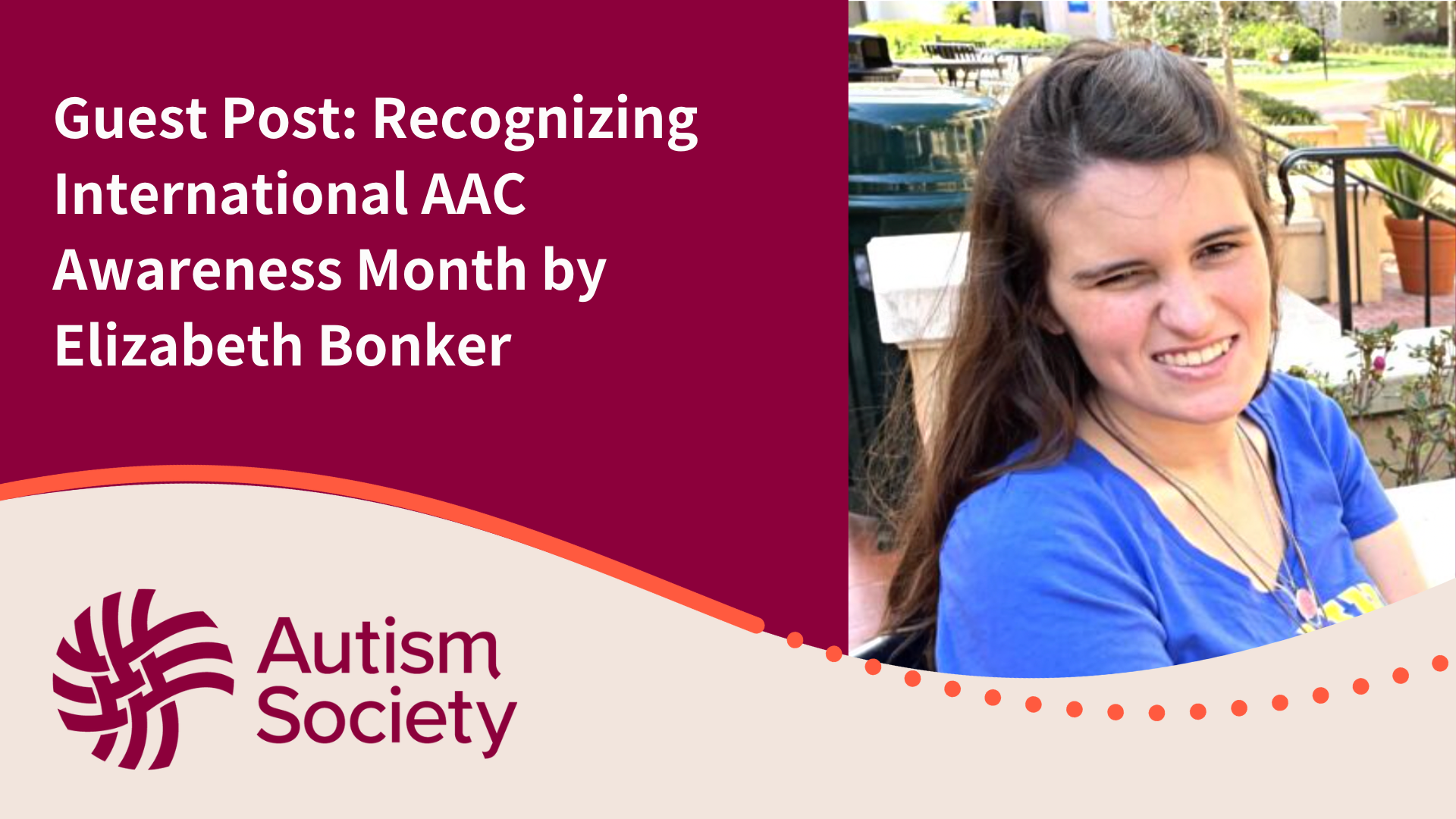
In this issue of Capitol Connection, see updates on the Autism CARES Act reauthorization and plans for a continuing resolution, election resources, and a voting workshop, along with numerous resources to assist in state and local advocacy efforts. Please continue to use the Action Center to write to Members of Congress and the election center to prepare for election day on November 5, 2024.
Members of Congress return from the summer recess on September 9 to a hectic schedule before leaving to campaign before the November elections. With none of the 12 annual appropriations bills signed into law, Congress will have to negotiate and pass a continuing resolution (CR) to keep federal programs operating. They will also have to work to pass some must-pass bills that are expiring, including the Autism CARES Act. The Autism Society and other advocacy groups continue to push for legislation to make it easier for SSI recipients to save money and work and for legislation to phase out the use of subminimum wages.
Take Action: Autism CARES Act
Twenty-three national disability organizations signed on to a CCD letter urging congressional leaders to work collaboratively and expeditiously to ensure that the Autism CARES Act is renewed before the September 30 deadline with enhancements that were included in both the House and Senate bills. Please continue to educate members of Congress about the need to reauthorize this important law using the Autism Society’s Action Center. A sample (editable) letter is provided.
Self-Advocate Voting Workshop
The Autism Society and the National Association of Councils on Developmental Disabilities are hosting a virtual self-advocacy workshop on September 17 focused on preparing for Election Day. The workshop, entitled “Ready, Set, Vote: Your Guide to Election Day Preparation,” will feature a panel of self-advocates including Tyson Bedford, Kelly Israel, and Sam Brandsen, along with Denise Resnik, President/CEO of First Place AZ. Please register using this link.
Vocational Rehabilitation
A new technical assistance document has been shared by the Rehabilitation Services Administration (RSA) within the U.S. Department of Education. This guidance discusses how out-of-state services should be handled by the state’s vocational rehabilitation agencies. The bottom line of the guidance provided by RSA states that if a recipient’s request for services falls within their individualized education plan and the service does not exist within the state, the state should accommodate the request, including for postsecondary services.
New National Council on Disabilities (NCD) Report
The National Council on Disabilities (NCD) released a new comprehensive report on the practices of clinical trials that exclude individuals with disabilities from participating. NCD finds that although many efforts have been made to ensure clinical trials are more equitable, disability has not been included. This has led to little to no representation in clinical trials which can have a negative impact on the disability community. NCD encourages the Food and Drug Administration and the Health and Human Services Department to develop guidance on eligibility parameters for the lead researchers. NCD also encourages clinical trial study teams to provide a list of accepted accommodations in the informed consent documents, which act as the explanation of the study to interested participants.
Prescription Drug Prices
The White House released a fact sheet on the first ten drugs selected for Medicare price negotiation. The negotiated prices will come into effect in 2026 and save Medicare Part D enrollees 1.5 billion dollars in out-of-pocket costs, according to White House estimates. More drugs will be selected each year as part of Medicare’s drug price negotiation program.
Social Security Transition Aged Resources
The Social Security Administration (SSA) is sharing its transition-aged materials for individuals ages 14-17. They recently started mailing these resources to current SSI recipients between this age frame. The resources include a publication on “What You Need to Know About Your SSI When You Turn 18” and their Youth Toolkit webpage.
Housing
The U.S. Department of Housing and Urban Development (HUD) published guidance that creates new alternative requirements and waivers that enable public housing agencies (PHAs) to better utilize Mainstream Vouchers to help people with disabilities transition from and avoid institutional settings. HUD’s Mainstream Vouchers provide funding to housing agencies to provide rental assistance to non-elderly persons with disabilities, who are at least 18 years old. See more in the HUD press release.
Also related to housing, PBS aired a piece on the issue of people living on SSI being priced out of housing in the United States. See the segment here.
Supplemental Security Income (SSI) Application Announcement
Social Security Administration (SSA) is embarking on a multi-year effort to simplify the Supplemental Security Income (SSI) application process. SSA announced that it will roll out a fully online SSI application featuring plain-language questions that have been tested by users. The updated version will pre-populate answers when possible and include seamless transitions, among other improvements. The changes, known as iClaim expansion, are intended to cut down on the time it takes to apply and speed up initial claim decisions, officials said. The updated application will be available starting in December for first-time applicants ages 18 to 65 who have never been married and who are seeking Social Security and SSI benefits. It’s expected to expand to all applicants in late 2025.
Kentucky Findings Report
On August 27, 2024, the Department of Justice released a Findings Report about its investigation of the Commonwealth of Kentucky under Title II of the Americans with Disabilities Act. The Justice Department found reasonable cause to believe that Kentucky violates the ADA by failing to provide adults with serious mental illness in the Louisville/Jefferson County Metro area with the community-based services necessary to avoid segregation in psychiatric hospitals. The lack of community-based services has also left law enforcement as routine responders to mental health crises, contributing to avoidable law enforcement encounters and incarceration.
The Justice Department found that Kentucky can make reasonable modifications to remedy this discrimination, including expanding its existing community-based mental health services system. The Department is committed to working with Kentucky to implement necessary reforms.
The State of the Teaching Workforce
The Learning Policy Institute released a comprehensive state-by-state analysis of the teacher workforce. Data includes compensation, working conditions, school resources, hiring and turnover, and equity. This analysis provides for a good understanding of what teachers and the state of education are facing in each state which can be used for state advocacy efforts.
Respite Care Locator
The ARCH National Respite Network maintains a respite care locator database to help caregivers find respite across the country. The website also connects caregivers to their State Respite Coalition which can have additional helpful resources. All you need to do is enter an address.
Share:





